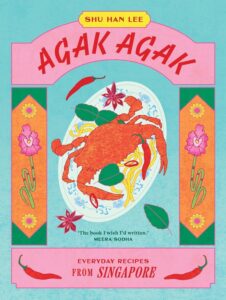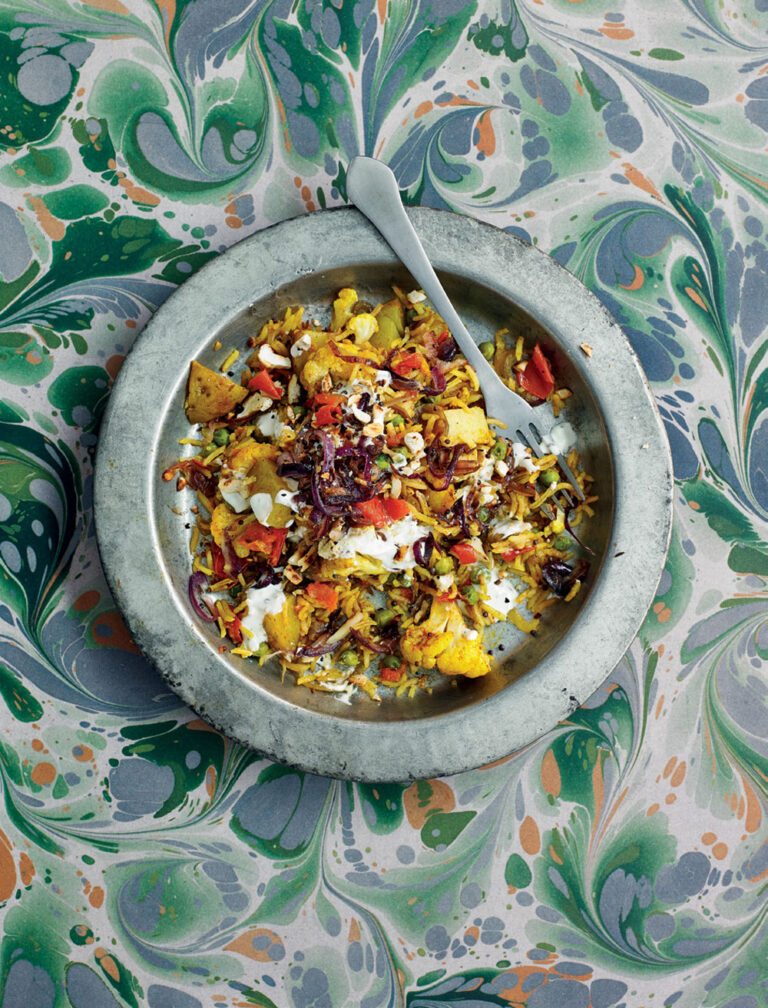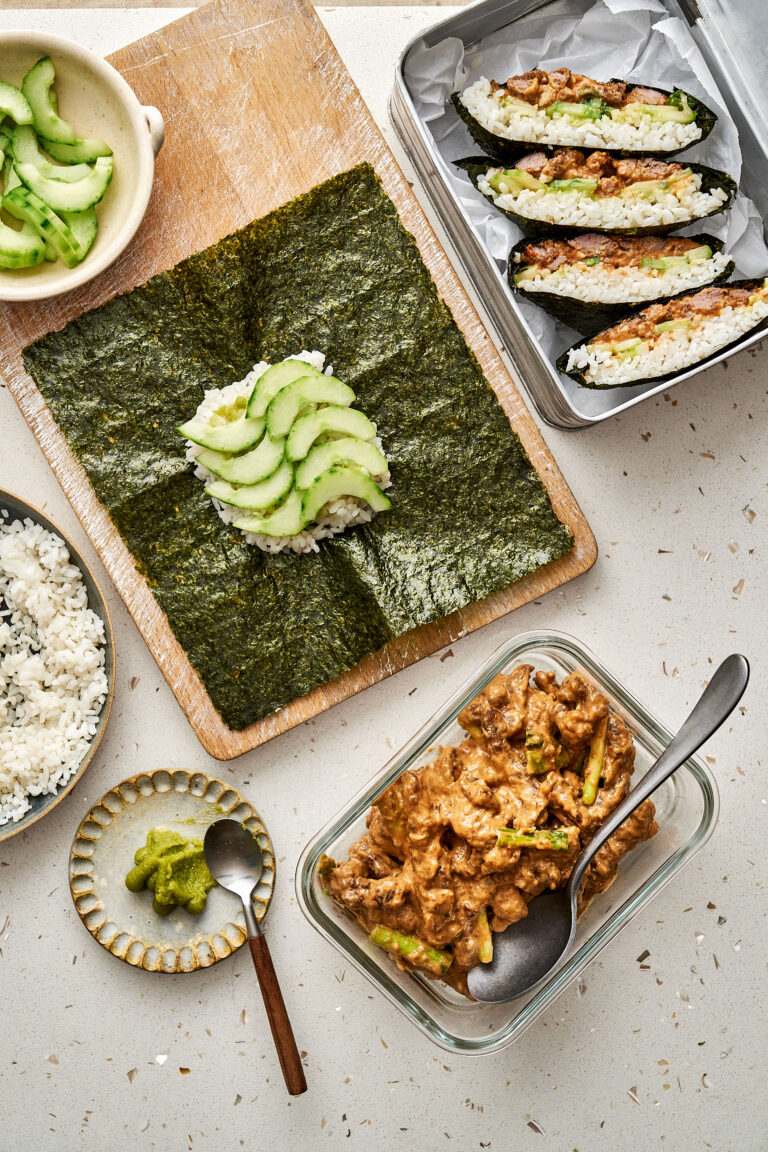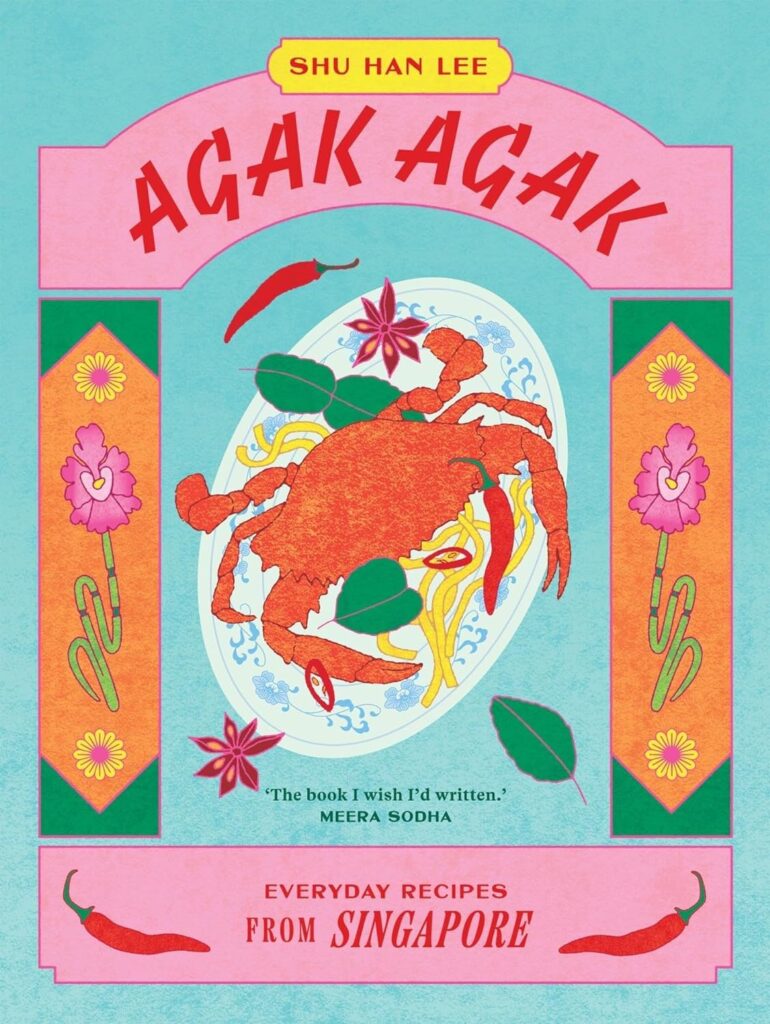Nasi Goreng

Nasi goreng is a staple rice dish enjoyed across Indonesia and it's perfect for using up any leftover rice or veg you've got to hand. In this easy-to-follow recipe, Shu Han Lee presents a delicious Malay-style version of the dish, flavoured with sambal and topped with a runny fried egg.
From the book
Buy From
Introduction
You will find fried rice in almost every rice-eating nation, and Singapore is no exception. Given our cultural diversity, there are countless varieties of fried rice, but the one I always turn to is this Malay-style fried rice, seasoned with kecap manis and sambal. It’s a good recipe to have in your back pocket, as you can turn leftover rice and the bits and bobs sitting around in your crisper drawer into something truly special. I’ve used green beans here, but you could just as easily use the same volume of any crisp green vegetables, odd ends of carrots or celery, or even frozen peas. The only thing I would highly encourage you to keep are the runny fried eggs, as when broken, the yolks spill into the fried rice, adding richness to each spoonful.
Ingredients
| 3 tbsp | vegetable oil |
| 2 large | free-range eggs |
| Pinch of | fine sea salt, to taste |
| 1 | banana shallot, finely chopped |
| 100 g (3½ oz) | green beans, chopped into 1 cm (½ in) lengths |
| (300 g/10½ oz/ 2½ cups) | cooked long-grain rice |
| 1½ tbsp | light soy sauce |
| 1 tbsp | kecap manis |
| 1 | red chilli, sliced |
| 1 tbsp | Sambal Tumis, plus more to serve |
| juice of ½ lime | |
| To serve: | |
|---|---|
| Few sprigs of | fresh coriander (cilantro), roughly torn |
| fried shallots | |
| ½ | cucumber, sliced |
| Handful of | prawn crackers (optional) |
Method
Heat the oil in a wok set over medium–high heat. Carefully crack the eggs into the hot oil and season with a pinch of salt. Fry until the whites set and turn golden brown on the edges – you might want to spoon the hot oil over the whites to help them set. Remove with a slotted spatula and set aside, keeping them warm.
Add the shallots to the remaining oil in the wok and stir-fry until fragrant and light golden. Then add the green beans to cook, frying until they are bright green and tender. Now, whack the heat up so the oil is smoking hot, before adding the cold cooked rice. Spread out the rice and jab lightly with your spatula to break up any lumps. Stir in the soy sauce, kecap manis, chilli and sambal tumis, stirring and tossing to make sure all the rice grains are well coated. Keep stir-frying until the seasonings evaporate and the rice is heated through. When you see the edges of the rice start to caramelise, squeeze the lime over and give it a final stir through.
Divide the nasi goreng onto two plates and top with a fried egg each. Finish with a sprinkle of coriander, fried shallots and an extra dollop of sambal. I also like to arrange a few cucumber slices and prawn crackers alongside the rice – they add a delightful crunchy textural contrast to the dish.
Reviews
3 Ratings
Have you tried this recipe? Let us know how it went by leaving a comment below.
Thank you for your rating. Our team will get back to any queries as soon as possible.
Please note: Moderation is enabled and may delay your comment being posted. There is no need to resubmit your comment. By posting a comment you are agreeing to the website Terms of Use.










